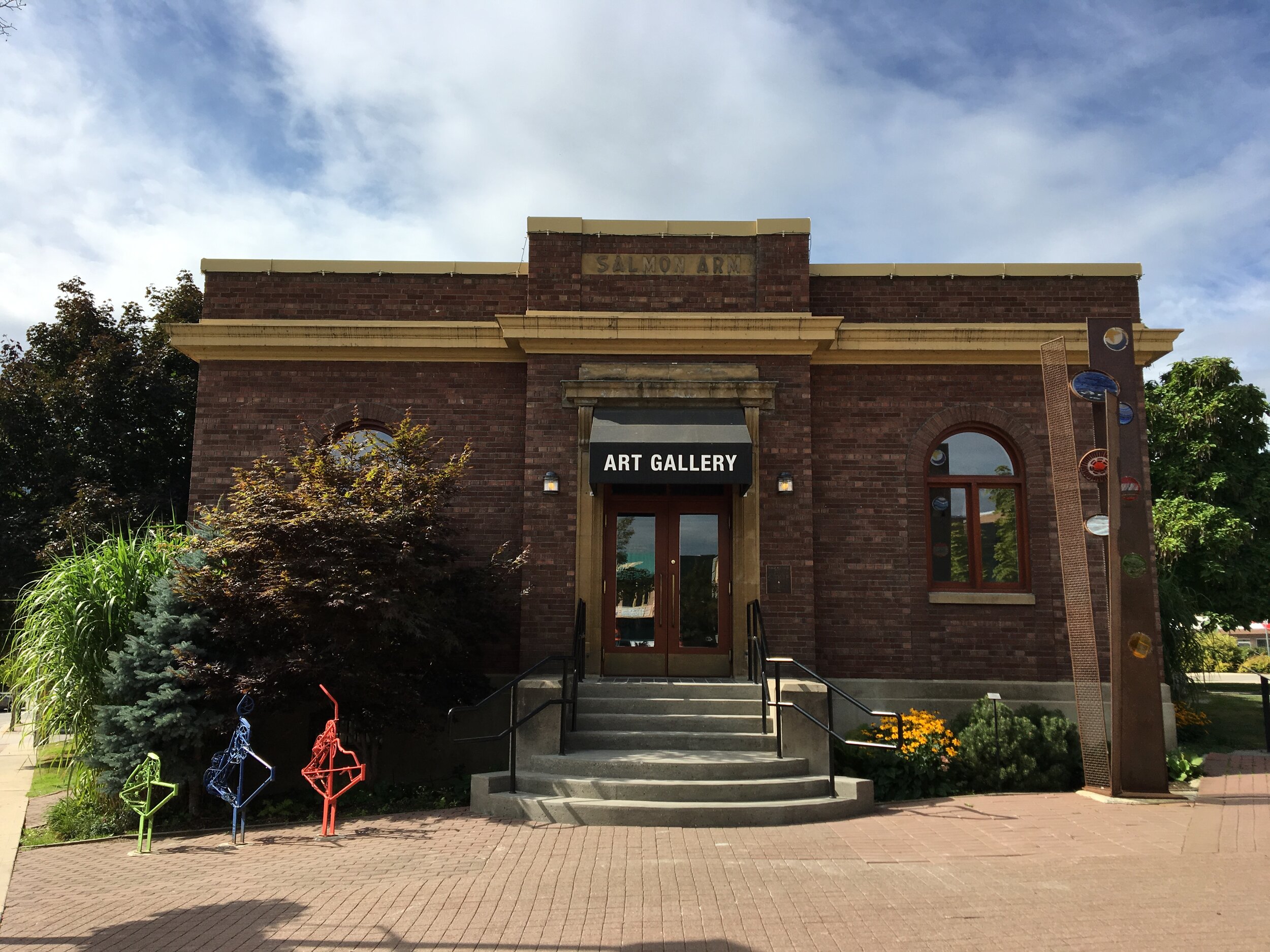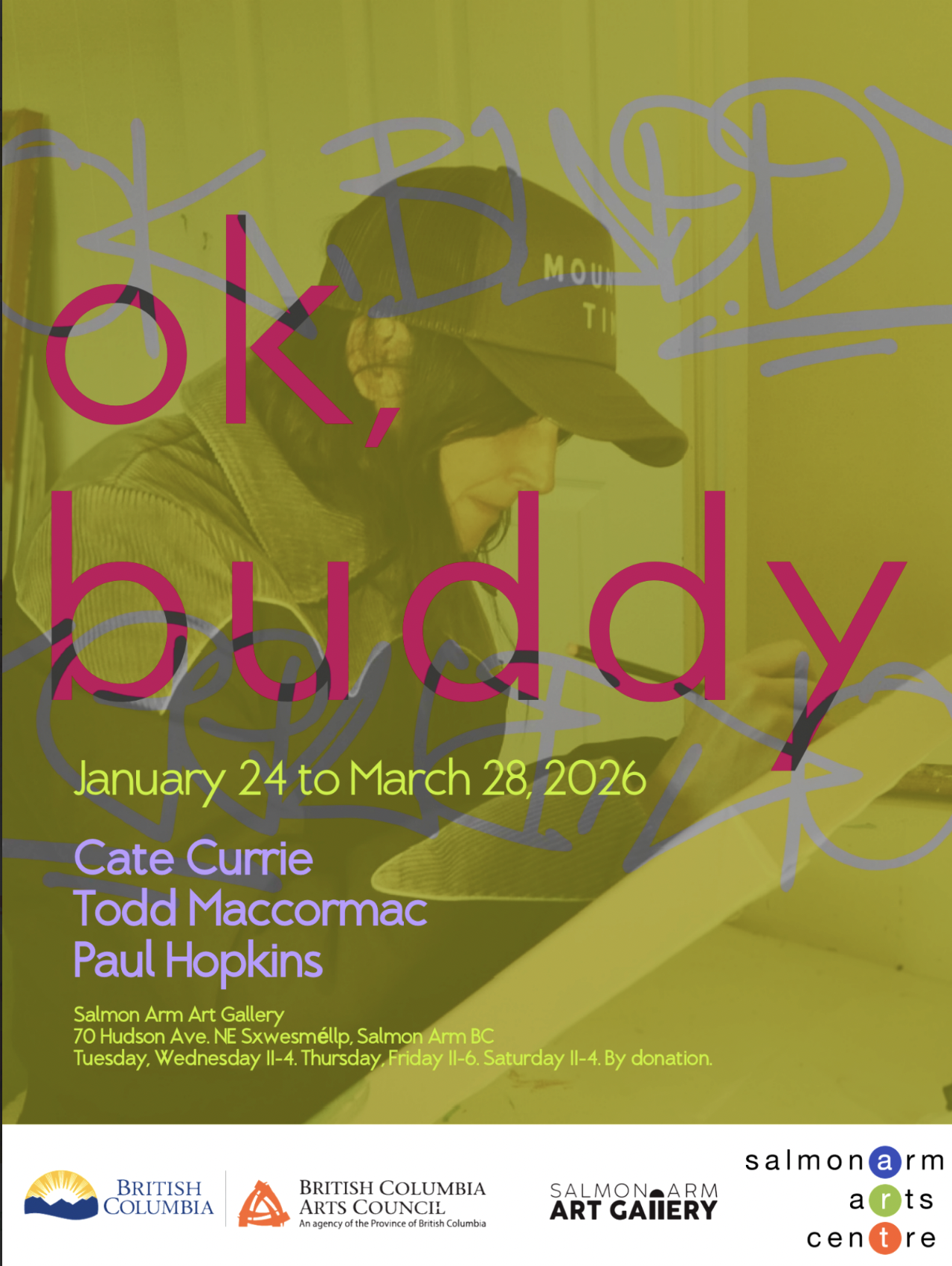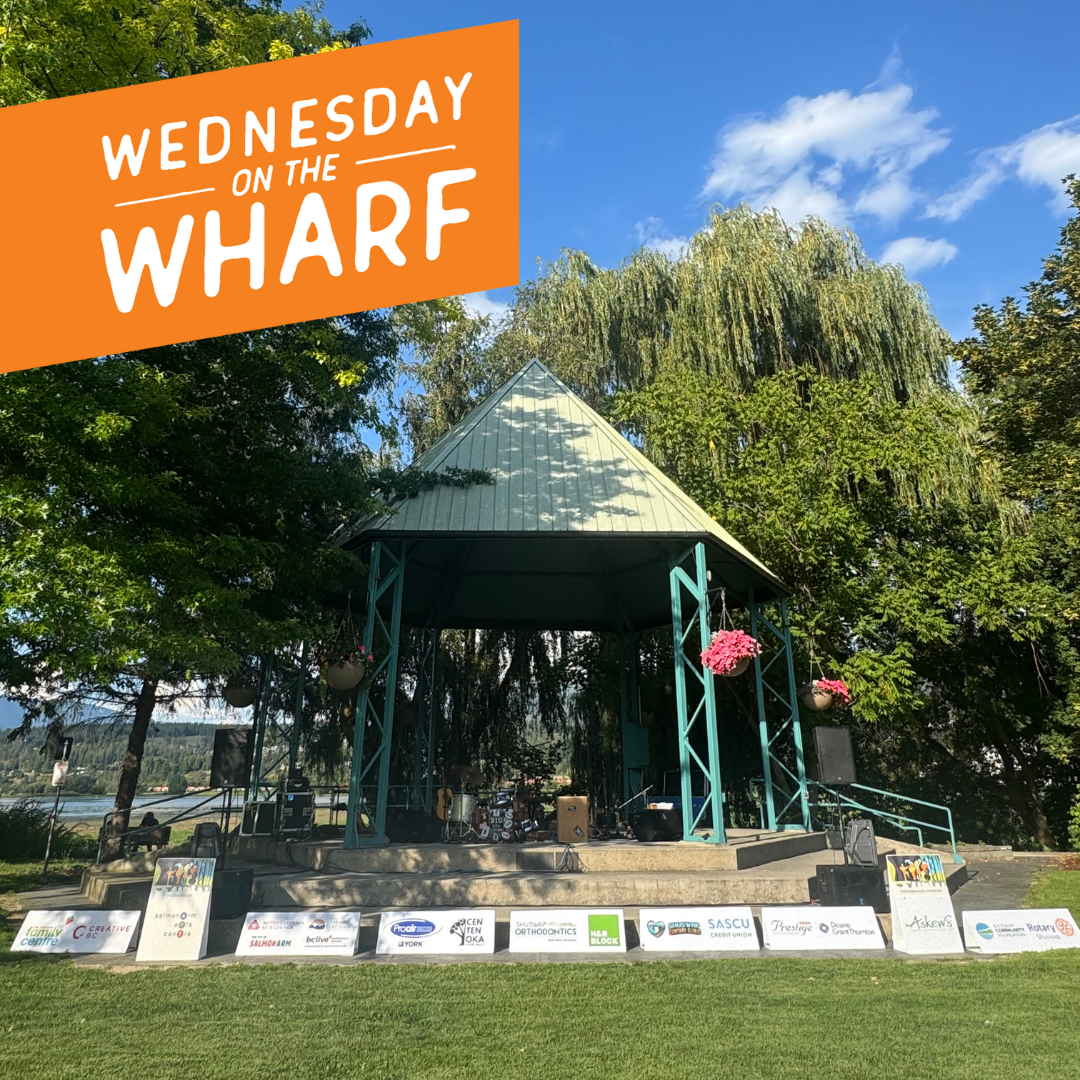
A place to enjoy, experience, and exhibit the Arts in Salmon Arm, BC
Visit us: Downtown Salmon Arm at 70 Hudson Ave. NE
Hours: 11am - 4pm Tuesday, Wednesday, Saturday. 11am - 6pm Thursday, Friday
Ok, buddy
January 24 - March 28, 2026
Ok, buddy is an immersive exhibition featuring Cate Currie, Todd Maccormac, and Paul Hopkins. Bold, energetic works circle a central interactive cube—a replica of Currie’s bedroom—where visitors step inside a narrative of reflection, challenge, and change. It holds space for difficulty while making room for humour, vitality, and beauty.
Online applications for Wednesday on the Wharf are now open!
Click here to jump to the WOW page.



